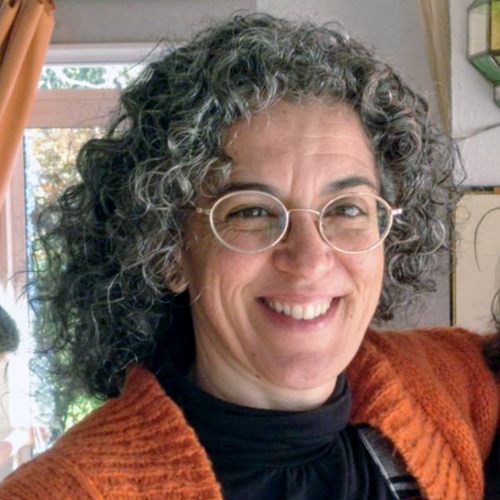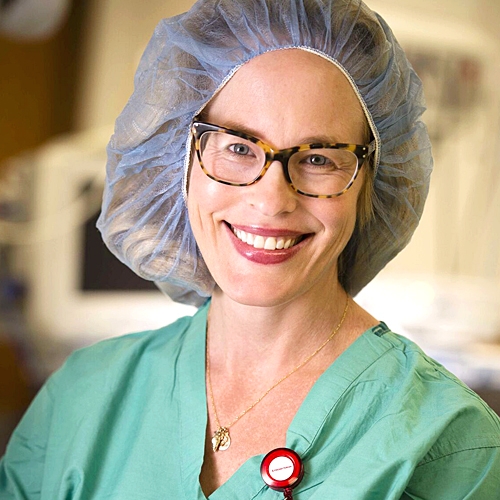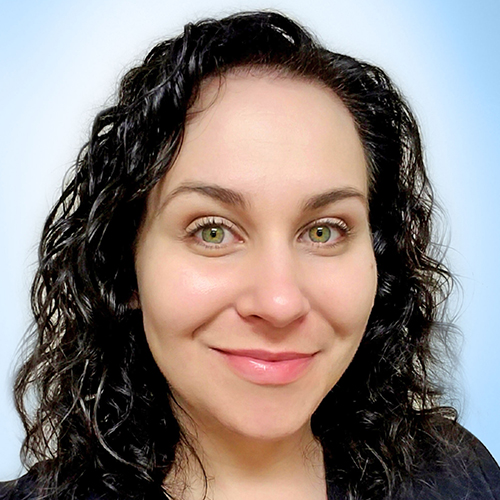 IBCLC Detailed Content Outline: Pathology Focused CERPs - Section III
IBCLC Detailed Content Outline: Pathology Focused CERPs - Section III
Access CERPs on Pathology for the IBCLC Detailed Content Outline recertification requirements. Enjoy convenient on-demand viewing of the latest Pathology focused IBCLC CERPs at your own pace.

Low Milk Production Detective Work: Assessment and Care Plan Considerations

Melissa Cole is a board-certified lactation consultant, neonatal oral-motor assessment professional and clinical herbalist in private practice. Melissa is passionate about providing comprehensive, holistic lactation support and improving the level of clinical lactation skills for health professional. She enjoys teaching, researching and writing about wellness and lactation-related topics. Her bachelor’s degree is in maternal/child health and lactation and her master’s degree is in therapeutic herbalism. Before pursuing her current path, Melissa’s background was in education and cultural arts, which has served her well in her work as a lactation consultant and healthcare educator. She loves living, working and playing in the beautiful Pacific Northwest with her 3 children.
Topic: Beyond Fenugreek: An Individualized Approach to Dietary and Herbal Galactagogues - [View Abstract]
Topic: Beyond the Basics of Latch: Support Strategies for Helping Babies when the Basics Aren’t Enough - [View Abstract]
Topic: Common Infant Digestive Health Concerns and Useful Support Strategies - [View Abstract]
Topic: Connection and Care: Virtual Support for Tongue-Tied Infants - [View Abstract]
Topic: Feeding is Movement: Activities for Supporting Optimal Infant Oral Function - [View Abstract]
Topic: Infant Gut Health: Common Concerns and Useful Support Strategies - [View Abstract]
Topic: Infant Oral Assessment: Exploring Anatomy and Function Beyond the Frenulum - [View Abstract]
Topic: Low Milk Production Detective Work: Assessment and Care Plan Considerations - [View Abstract]
Topic: New Thoughts on Infant Pre and Post-Frenotomy Care - [View Abstract]
Topic: Placenta Medicine as a Galactogogue: Tradition or Trend? - [View Abstract]
Topic: Thinking Critically About the Use of Clinical Lactation Tools - [View Abstract]
Topic: Will It Hurt? Frenotomy Aftercare Strategies to Optimize Healing Outcomes for the Newborn - [View Abstract]
Concerns about low milk production can be frustrating for parents and clinicians alike. There are many reasons milk production can be compromised. How can lactation and health professionals best assess the root causes of the production issue at hand and suggest targeted, sustainable ideas? This presentation will help clinicians think about the ‘detective work’ needed to help provide personalized care. Through interactive case studies, participants will critically-think about assessment and care plan strategies for the families in their care that are struggling with low milk production.

View Details / Enroll
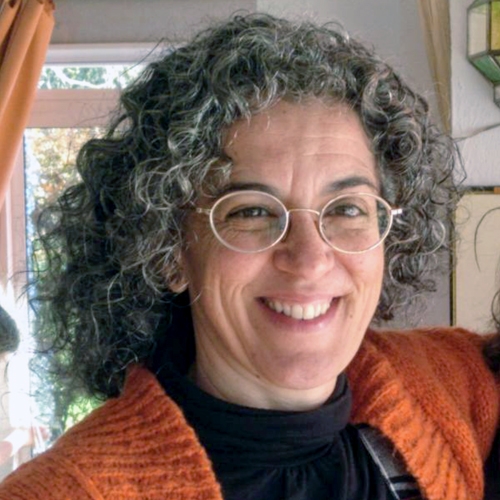

Carmela is a family medicine MD, bachelor´s degree in Public Health Education, and IBCLC since 2005. She is also a BFHI Evaluator and the co founder and past president of the Spanish Lactation Consultant Association (AECCLM). She works in a private Family Wellness Clinic, Raices, as person in charge of the lactation program, which includes two IBCLCs attending breastfeeding families and an extensive offer of breastfeeding training for health care professionals and breastfeeding peer counsellors. The team has trained over three thousand doctors, midwives and nurses from both the Spanish National Health Service and the private sector in Spain. She is a frequent lecturer at national conferences, and has also lectured internationally, both on-site and online. She is the author of several scientific papers on breast pain, mastitis and tongue tie. She is also the author of a breastfeeding/parenting book, “Amar con los Brazos Abiertos” (To Love with Open Arms). She is married to Carlos and they homeschool their four children.
Topic: Assessment and Management of Mastitis - [View Abstract]
Topic: Getting Milk Production off to a Good Start - [View Abstract]
Topic: Management of Chronic Breast Pain: Holistic Approach - [View Abstract]
When a breastfeeding mother consults because of chronic, deep breast pain, we feel weak at the knees. Often these mothers have been to several specialists and nothing has worked for them. Is it mastitis? Thrush? Referred pain from an inadequate latch? Emotional issues? Or is it all of the above, and even more? In this presentation we will learn to do an in-depth clinical history and to use an holistic model for a systematic management of chronic breast pain, so we can offer these mothers more efficient solutions – and better counselling.

View Details / Enroll


Pamela Morrison has worked with breastfeeding mothers and babies for 30 years. She served as a La Leche League Leader in Harare, Zimbabwe from 1987 before certifying as the first IBCLC in the country in 1990. She worked in private practice until 2003, before moving to Australia and then to England. She served for many years on the Zimbabwean National Breastfeeding Committee and on the BFHI Task Force. She has subsequently served as Co-coordinator of the WABA Task Forces on Infants Nutrition Rights and on Breastfeeding and HIV. Pamela continues to write and speak for the preservation and protection of breastfeeding in challenging situations.
In biological terms, successful breastfeeding demands that the baby survives and thrives on his mother’s milk. “Not-enough-milk” (either real or perceived) has long been recognized as the most common reason why mothers abandon breastfeeding. Ways to identify for the mother whether a baby is “getting enough” are discussed. The causes of inadequate breastmilk intake include physiological/anatomical conditions in mother/baby, poor lactation management or other more obscure causes. While planning interventions to enhance breastmilk production and improve infant intake, it is important to protect the baby’s nutritional status. Simultaneously implementing strategies to increase the mothers’ breastmilk supply while caring for a high-need baby can be immensely challenging. Each client will need constant support, reassurance and re-evaluation. Turning such a difficulty around, with the goal of eventually returning to exclusive breastfeeding, can be one of the most fulfilling and rewarding situations that an IBCLC can work with.


Dr. Narvey began his training in Pediatrics at the University of Manitoba in Winnipeg where he completed a year of further training in Neonatology. This was followed by two years of Neonatal fellowship at the University of Alberta in Edmonton. Afterwards he began his career as a Neonatologist in the same city and over the 6 years he spent there, his career included both clinical and administrative duties including 4 years as the Fellowship Program Director and two years as the Medical Director for a level II unit. In late 2010 he accepted a position in Winnipeg to become the Section Head of Neonatology and continues to hold this post. In 2016 he took on the additional role of Medical Director of the Child Health Transport Team. In 2015 he became a member of the Canadian Pediatric Society’s Fetus and Newborn Committee and in 2019 took over as Chair of the same. His interests predominantly lie in the use of non-invasive technology to minimize painful procedures during an infants stay in the NICU. He is active on social media and has a passion for fundraising and is an active board member of the Children’s Hospital Foundation of Manitoba.
Topic: Human Milk Diet and Fortification: Controversies and Evidence - [View Abstract]
Topic: Many Different Shades of Yellow - [View Abstract]
Topic: Respiratory Problems in the Newborn: Where Are We in 2022? - [View Abstract]
Topic: Sweet and Sour: Hypoglycemia in the Newborn - [View Abstract]
Jaundice is one of the most common problems facing health care practioners in NICU. As we approach the 50th year of phototherapy this talk will explore some of the outstanding questions concerning diagnosis and treatment. Particular attention to the use of transcutaneous measurement and controversies pertaining to thresholds for treatment below 35 weeks gestational age will be discussed. Lastly we will explore how our current approach to jaundice may influence the risk of developing severe hyperbilirubinemia and chronic bilirubin encephalopathy (kernicterus) in a Canadian population.

View Details / Enroll


Tamara Drenttel Brand holds an MA in Near Eastern Studies from the University of Arizona and a Master’s in Public Health (MPH) from the American University of Beirut. She spent 10 years in the Middle East, where she worked as a public health practitioner, infant and maternal health consultant and an IBCLC. She has supported breastfeeding dyads from all over the world both in private practice and as a volunteer. In 2011, she founded and still actively facilitates “Mama 2 Mama Beirut Breastfeeding Support,” the largest breastfeeding peer support network in the Middle East (currently at 25k+ members). Additionally, she founded Galactablog, a professional group for lactation specialists and those aspiring-to-be (currently at 4.7k+ members) and has authored several articles for La Leche League’s monthly leader publications in both the Middle East and Ireland.
She is currently an international speaker on the topics dealing with breastfeeding in the Middle East, innovative lactation teaching strategies, working in resource-scarce settings, providing culturally sensitive lactation support, developing and implementing peer counselor training programs, mast cell disease and other related topics. Due to her own chronic health conditions, she has a special interest in educating others about mast cell disease and supporting those with chronic illnesses. She currently resides in a seaside village in Ireland with her family.
Topic: Contextualizing Breastfeeding in Lebanon - [View Abstract]
Topic: Lactation Education Outside the Box: Innovative Teaching Strategies to Engage Your Audience - [View Abstract]
Topic: Mast Cell Diseases and Lactation Care in the Post-Covid Era - [View Abstract]
Topic: Providing Culturally Sensitive Support for Breastfeeding Muslim Families - [View Abstract]
Topic: Reflections on a Breastfeeding Peer Counselor Program in Lebanon: Lessons Learned and Looking Forward - [View Abstract]
Mast cell diseases remain highly misunderstood and underdiagnosed conditions, even among medical professionals. Patients often take years to be diagnosed due to the range of symptoms and effects that such diseases can manifest. Recently, emerging evidence-based research has found links between mast cell disease(s) and Long COVID, theorizing that COVID-19 can exacerbate existing and undiagnosed mast cell diseases and that the SARS-CoV-2 virus itself could activate mast cell diseases. This raises the possibility that mast cell diseases will become more prevalent, requiring medical professionals, including lactation specialists, to be aware of their impacts and to provide the specialized care and support that such conditions require.
This presentation will provide participants with an overview of the different types of Mast Cell Diseases, symptoms, triggers and treatments. It will discuss associated chronic conditions and will highlight potential complications that such diseases can present for birth and breastfeeding. It will also provide resources to help participants determine lactation risk and compatibility with Mast Cell disease treatments and medications. Finally, this presentation will equip participants with the knowledge and practical tools to improve lactation support and care for clients with Mast Cell Disease.

View Details / Enroll

Maternal & Infant Assessment for Breastfeeding: Essential Concepts for Midwives

Barbara Wilson-Clay became a La Leche League Leader in 1982. She certified as an IBCLC and entered private practice in Austin, Texas in 1987. Barbara was named a Fellow of the International Lactation Consultant Association in 2008. She recently retired from her practice, which specialized in difficult breastfeeding situations. With a client load of 400-450 visits yearly, Barbara garnered a wealth of clinical and counseling experience and a trove of clinical teaching photos. In partnership with Kay Hoover, she created The Breastfeeding Atlas, which was translated into Chinese in 2019 by Fudan University Press. A Korean translation will be published in September 2020.
Barbara has been a citizen advocate for breastfeeding in the Texas legislature and helped pass a landmark law protecting breastfeeding rights. She is one of the co-founders of the non-profit Mothers Milk Bank at Austin, and retired as Vice President of the Board of Directors in 2010. She continues to serve on the Advisory Board. Barbara's research and commentaries have appeared in the Journal of Human Lactation, Archives of Disease in Childhood, the International Breastfeeding Journal, and others. She has served on various editorial review boards and contributed chapters to several lactation textbooks.
Topic: Looking Both Ways: Taking Wisdom from the Past Into the Future - [View Abstract]
Topic: Looking Closely at The Baby - [View Abstract]
Topic: Maternal & Infant Assessment for Breastfeeding: Essential Concepts for Midwives - [View Abstract]
Infants born at term following an uneventful birth generally require no breastfeeding interventions aside from a supportive environment. However, even in populations of women who are well-motivated to breastfeed, fully one third of infants demonstrate sub-optimal breastfeeding behavior in the first week postpartum. Risk factors have been identified that predict which mother-infant pairs may require extra assistance to protect the option to fully breastfeed once conditions stabilize. Careful assessment of the dyad helps identify who will need the most help. Such assessment is necessary to protect the infant from excessive weight loss and, because the calibration of milk supply is a time-sensitive event, serves to protect the potential for a full milk supply. Midwives must be familiar with new research that recommends that, in the presence of risk factors, milk expression should begin in the first hour after birth, with expressed colostrum being delivered to the infant by spoon or cup.
View Details / Enroll
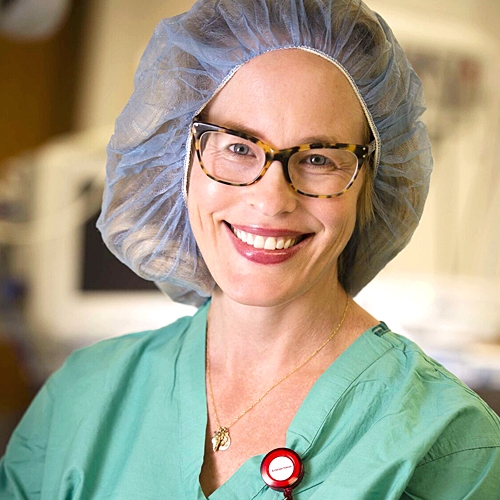

Katrina B. Mitchell, MD, IBCLC, PMH-C is a breast surgeon, lactation consultant, and perinatal mental health provider. Her surgical practice includes the care of women with breast cancer and benign breast disease. She sees runs a daily breastfeeding medicine practice, treating patients for a wide variety of lactation concerns ranging from hypolactation to nipple trauma. Additionally, she provides medication management and support for women impacted by perinatal mood and anxiety conditions.
Dr. Mitchell lectures locally, nationally, and internationally on the intersection of lactation and surgery, and has authored book chapters, clinical care protocols, and journal articles on the topic. She is the creator of the physicianguidetobreastfeeding.org, an evidence-based resource for breastfeeding families and the communities that support them. Dr. Mitchell resides in Santa Barbara, California and practices at the Ridley Tree Cancer Center at Sansum Clinic. She enjoys reading, traveling, and spending time with her son camping at the beach. She can be reached at physicianguidetobreastfeeding.org.
Topic: Performing Physical Breast Assessment - [View Abstract]
The purpose of this presentation is to first review basic components of the breast physical exam, and then transition into the management of challenging maternal complications of lactation. We also briefly will review breast imaging that may be required for diagnostic purposes in this setting.

View Details / Enroll
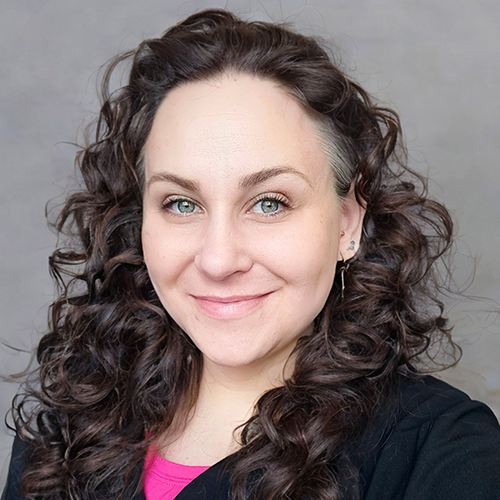

Megan Dunn is a board certified Lactation Consultant and Health Educator who views infant feeding from an anthropological perspective and through a sociological lens. Her experiences have run the gamut as a volunteer, peer-to-peer counselor, clinical IBCLC, and as an educator.
Currently she is the Breastfeeding Program Coordinator for a local WIC agency where she is coordinating a pilot program to equitably expand peer services. She is privileged to be a part of the excellent team at Legacy Health as a perinatal Educator. She also provides community lactation support as a home-visiting provider. Her goals are to support biological feeding norms and to offer practical and empowering solutions for dyads.
Professionally, her special interests include the fascinating world of our microbiome, empowering parents through Participant Centered and motivational approaches, and creating successful feeding solutions for complex cases. She is eager to collaborate on projects which focus on improving public policy and accessibility to culturally aware and trauma informed care for all perinatal families.
When she’s not pondering and working on all things human milk, Megan enjoys cooking, hanging out with her teenagers, going on nature walks, volunteering, and spinning tunes as a community radio host and DJ.
The billions of unicellular organisms which form a symbiotic relationship with our bodies provide essential functions which regulate, modulate, and maintain homeostasis. The microbiome has an essential role in prompting a proper immune response, maintaining adequate digestion and metabolic function, managing inflammatory status, supporting mental health, and many more functions which are required for good health. Dysbiotic conditions during the perinatal period are common and impact the infant feeding relationship.
In this presentation, participants will learn about the functions of the microbiome as it relates to lactation and infant health as well as the consequences of dysbiosis and its impact on lactation/infant feeding.
Additionally, participants will learn how to address dysbiotic conditions within their profession’s scope. This presentation provides clinically applicable information and recommendations that participants can apply when providing lactation education and developing care plans.

Navigating Pathways to Breastfeeding Success in the Late Preterm Infant

Dr. Nastassia Harris is a licensed registered nurse with over 15 years’ experience in perinatal nursing and became an International Board Certified Lactation Consultant in 2009.
Nastassia serves as an assistant professor in the school of nursing at Montclair State University. Over her career Nastassia developed a passion for eliminating disparities in black infant and maternal health. In 2018, she went on to found a nonprofit, the Perinatal Health Equity Foundation where she serves as the executive director. Through the nonprofit, Nastassia established Sistahs Who Breastfeed, a breastfeeding support group for black women which operates in several NJ cities.
She is active in several committees and organizations including the Association of Women's Health Obstetrics and Neonatal Nursing and the Black Mamas Matter Alliance. Nastassia's research and clinical interests include implicit bias/racism in healthcare, breastfeeding in the black community, obstetrical violence, high risk OB, and reproductive justice.
Topic: When It's Time to Let Go... Stories of Weaning - [View Abstract]
Breastfeeding the late preterm newborn (34 0/7 to 36 6/7 weeks) presents unique challenges that differ from that of a health full term baby. By nature of their immaturity, late preterm infants are at higher risk for developing jaundice, hypoglycemia, falling sleeping during feedings, and being difficulty to wake. Unfortunately, this also puts them at a greater risk for formula supplementation, despite a family’s desire for exclusive breastfeeding. This presentation will help to illustrate the challenges in breastfeeding the late preterm infant, and techniques for preserving exclusivity in the hospital and post discharge.
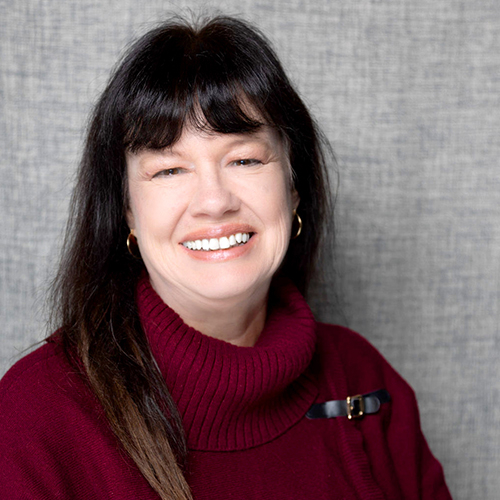
Navigating the Challenges of Tongue-Tie: Counseling and Anticipatory Guidance

Adrienne Guirguis, a board certified lactation consultant has over 25 years experience in helping breastfeeding infants and their families. She began her journey into the world of lactation after struggling to breastfeed her oldest son. She became an accredited La Leche League leader and was able to help babies breastfeed. Her experience with La Leche League led Adrienne to become a International Board Certified Lactation Consultant (IBCLC). She has been board certified for 20 years and has experience with a wide range of problems that may be experienced by new families. Adrienne has worked in hospital for over 10 years and then worked in community health for many years. She is a clinical practitioner, working hands on with families to improve feeding outcomes.
Adrienne continues her lactation education, constantly attending conferences and courses to stay up-to-date on the information and skills needed to benefit those who most need breastfeeding help. In 2022 Adrienne completed the Holistic Integrative/Functional Lactation course, a year long program followed by a residency. This course has increased her skills to provide the best care for the families with whom she works.
Adrienne also is an educator, working within the community to teach others the skills necessary to become lactation counselors and eventually board certified lactation consultants.
Parents with infants who are having breastfeeding issues due to tongue tie, face a complicated journey of conflicting information and differing opinions, complicated care plans and challenging emotions. Providing anticipatory guidance about the education providers receive on tongue tie, the many faceted symptoms of tongue tie for both parent and infant, the functional assessment versus the appearance of tongue and compensatory behaviors are all important for the parents to be able to make informed decisions and successfully navigate their way back to successful breastfeeding. Learn more about how to provide necessary information in a compassionate and useful way to already overwhelmed parents.





